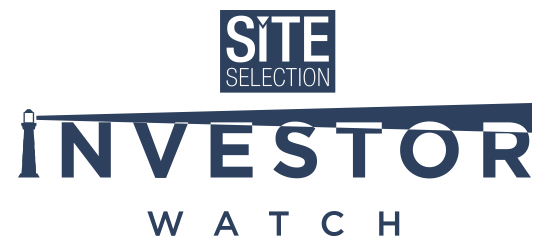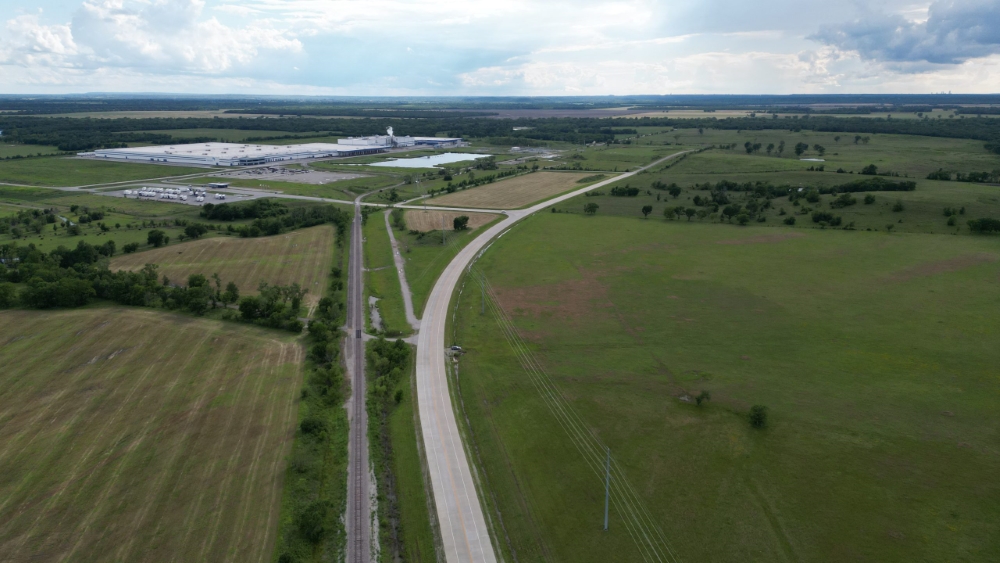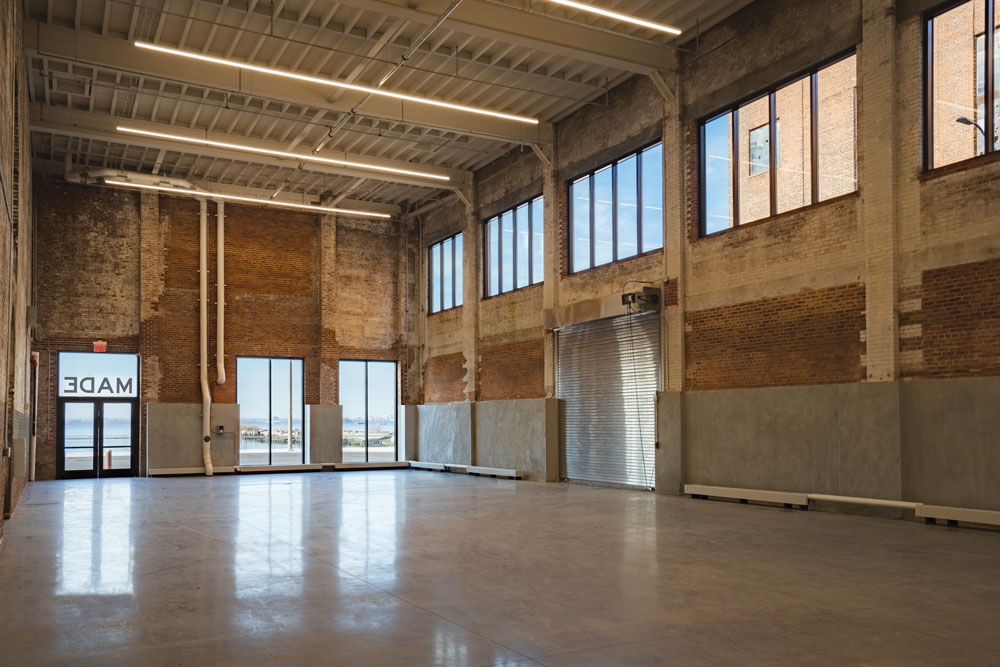|
|
|
|
|
|

|
|
|
|
Made In America, But Not In My Backyard
Yesterday a $3.6 billion data center campus was rejected by a city council in the Southwest (though the developers will likely invest elsewhere in the region). Elsewhere, residents are opposing game-changing megaprojects in the EV and battery sectors. “We want to build more things here,” writes Ben Sheidler, principal at Cornerstone Government Affairs, in this exclusive contribution to Site Selection. “But we haven’t gotten comfortable with the reality that ‘here’ means someone’s hometown.” He has a few straightforward recommendations … including being straightforward.
|
|
|
Read More >>>>
|
|
|
|
|
|
|
|
|
|
|
|
ADVERTISEMENT

|
|
|
|
|

Archive composite image by Jonny Therrell using images from Getty Images
|
|
This week we learned from a release sent to us by the Southwest Energy Efficiency Project (SWEEP) that Denver and Boulder in the past two weeks have finalized what SWEEP calls “transformational and long-awaited updates to their development codes, eliminating costly and outdated minimum parking requirements for all new development. The change allows builders to right-size new parking supply, freeing up valuable urban space and resources for housing, small businesses and other uses instead of excessive parking.” The release noted that Longmont last year was the first Colorado city (among at least 90 cities nationwide) to eliminate parking minimums citywide, with a number of other Colorado cities also eliminating them for certain types of construction such as multifamily and, in the case of Fort Collins, a potential removal of parking mandates for commercial development.
This specific topic in this particular place was broached seven years ago in a Site Selection conversation with Citiventure Associates President Marilee Utter about transit-oriented development (TOD) for “Navigating the Transit Project Labryinth.”
“I’m kind of appalled at all the parking I see built today,” Utter told us then from her Denver office. “Part of the reason is cities are requiring it. They think new building brings congestion and therefore parking is going to solve the problem.”

Marilee Utter, President, Citiventure Associates
Reached this week by email, Utter says she still stands by her observations of 2018, “though transit has clearly taken a post-pandemic hit in most markets. Looking globally, I’m confident it will be back, and despite Denver’s slow recovery, we still see TOD locations attracting investment. And yes, Denver is finally upgrading its approach to parking, but of course it took a severe housing crisis to make the change. I was initially disappointed that it passed our 13-person Council with three dissenters — until I realized they wanted to see parking maximums instead. That really is the next step because too many developers — and their bankers — are still skeptical of the research or have a high-net-worth clientele who demand more auto accommodation than most.”
Watch for TOD coverage in the September 2025 issue of Site Selection, where Managing Editor Kelly Barraza looks into the findings and implications of the Gensler Transit-Oriented Development Opportunity Index.
|
|

|

|
|
|
|
Start Strong in Georgia
Georgia’s accelerated development sites and skilled workforce give your business the edge. Connect with our team to explore opportunities.
Across the state, Georgia offers a portfolio of fully vetted, strategically located sites to accelerate your next project.
Site Readiness
- Over 60 accelerated development sites—certified and shovel-ready—to minimize risk and maximize speed.
- Communities across Georgia stand ready to support rapid project launches.
Logistics & Infrastructure
- Home to Hartsfield-Jackson Atlanta International, the world’s busiest airport
- Port of Savannah: Fastest growing and third busiest U.S. container gateway
- A robust rail and interstate network provides unmatched connectivity throughout the Southeast.
Workforce and Education
- Georgia Quick Start, the nation’s #1 workforce training program, helps tailor talent to your needs.
- Dedicated investments in K-12, technical, and higher education fuel a pipeline of skilled, job-ready workers.
Whether you’re launching, expanding, or relocating, Georgia delivers the resources, speed, and support to get you building—fast.
|
|
|
Start building today >>>>
|
|
|
|
|
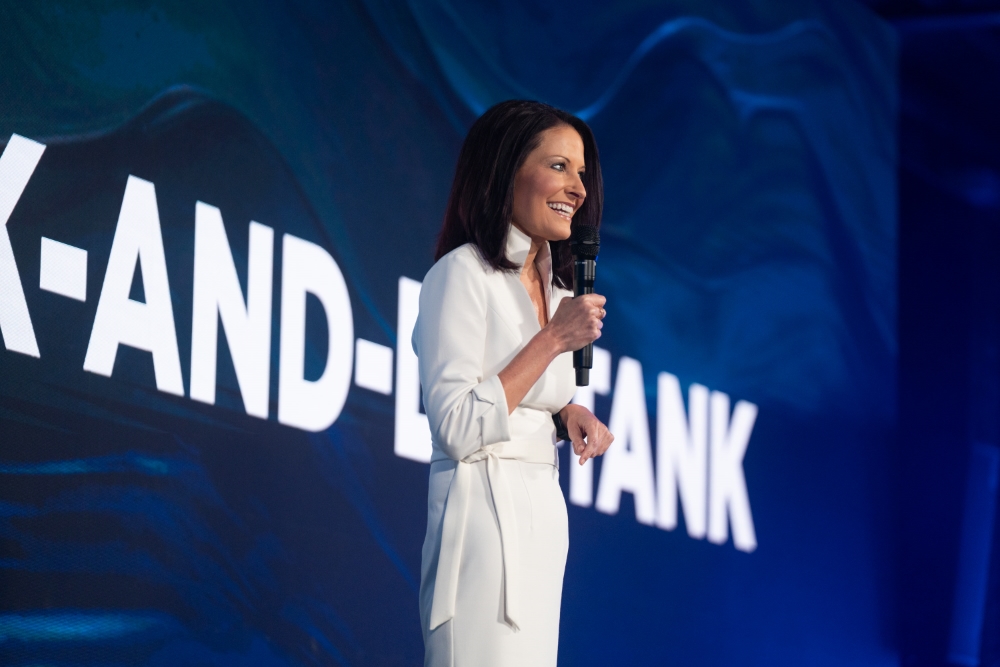
“From our vibrant small towns to our dynamic, growing cities, the middle of the country is a powerful engine of American potential,” Heartland Forward President Angie Cooper (pictured) said at the Heartland Summit, held in May in Bentonville, Arkansas.
Photo courtesy of Heartland Forward
|
|
Heartland Forward, the non-profit policy organization based in Bentonville, Arkansas, has announced that longtime leader Ross DeVol will move to chairman emeritus and distinguished fellow and Angie Cooper, who has served as president and COO, will lead the organization. said Cooper. “Our mission — to accelerate economic growth and reshape the narrative of the heartland — has never been more urgent,” Cooper said. “Together with our exceptional team and partners, we will strengthen public-private partnerships, expand workforce development, improve community health and harness the power of innovation — especially in this era of artificial intelligence.”
“Leading Heartland Forward has been one of the most rewarding experiences of my career,” said DeVol, long associated with the Milken Institute and an expert frequently cited in Site Selection. “Together, we’ve built a first-of-its-kind organization that not only conducts rigorous research focused on America’s heartland but also implements actionable solutions to drive economic growth.”
Heartland Forward’s recent work includes “Heartland of Talent 2025,” published in March, examines educational and occupational measures of talent in all 387 U.S. metros but focuses particularly on the 170 metros in the 20 states that make up the heartland region.
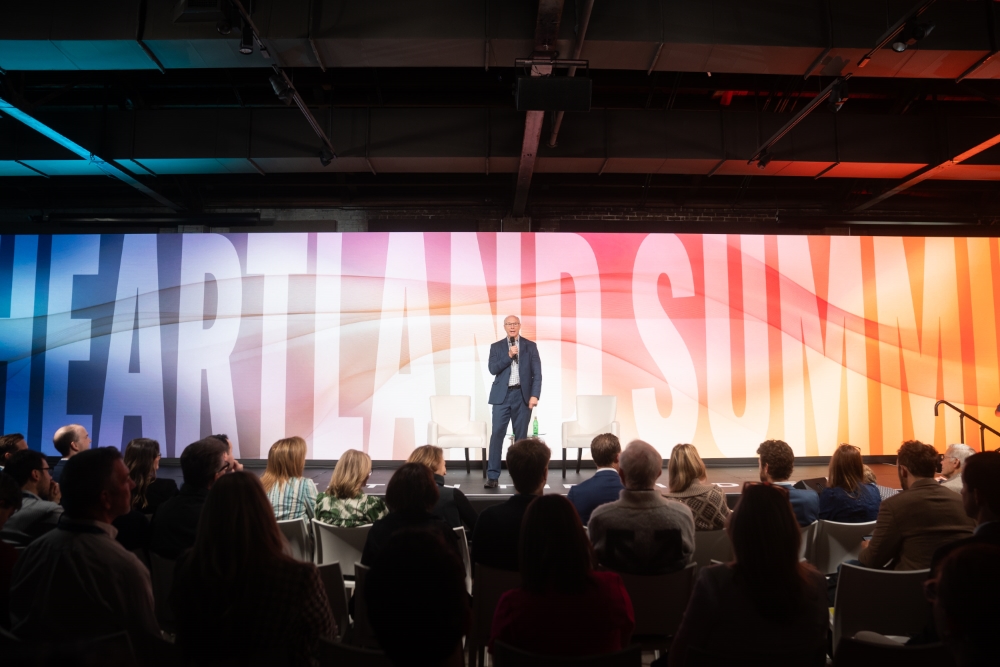
“The energy, insights and collaborations sparked at Summit will help ensure that the heartland is not just keeping pace with the future but boldly leading the way,” said Ross DeVol at the Heartland Summit in May.
Photo courtesy of Heartland Forward
|
|
|
|
|
|

|
|
PURE MICHIGAN
Make It in Michigan
A delightful photo album shows why the state is the perfect place to live, work, play, explore and find adventures. (No wonder Travel Michigan last week reported that the state’s tourism industry alone last year contributed $54.8 billion in economic impact.)
|
|
|
|
|
|
|
ADVERTISEMENT

|
|
|
|
|
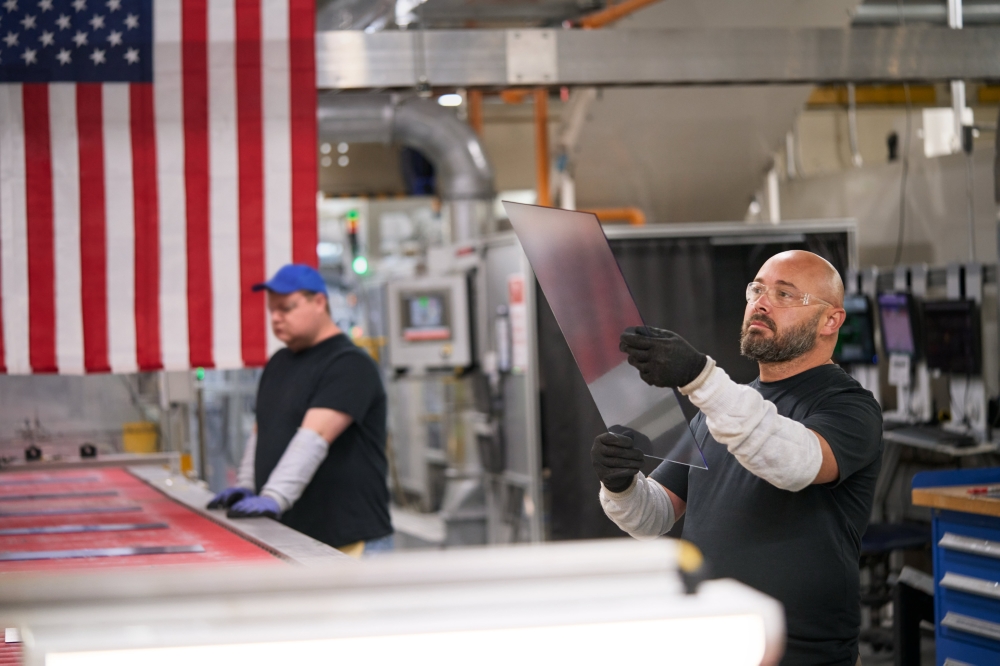
Photo courtesy of Apple
|
|
Yesterday the White House and Apple CEO Tim Cook announced Apple is adding another $100 billion to a commitment earlier this year to invest more than $500 billion in the U.S. over the next four years. Part of the newly updated total is the commitment to invest $2.5 billion to produce all of the cover glass for iPhone and Apple Watch in Corning’s Harrodsburg, Kentucky, manufacturing facility (pictured). Apple’s pledges to recommit to U.S. manufacturing have been coming for several years, including a plan involving Corning’s Harrodsburg plant announced in 2021 and documented in “Apple Rediscovers Its Core” in the July 2021 issue of Site Selection.
|
|
|
|
